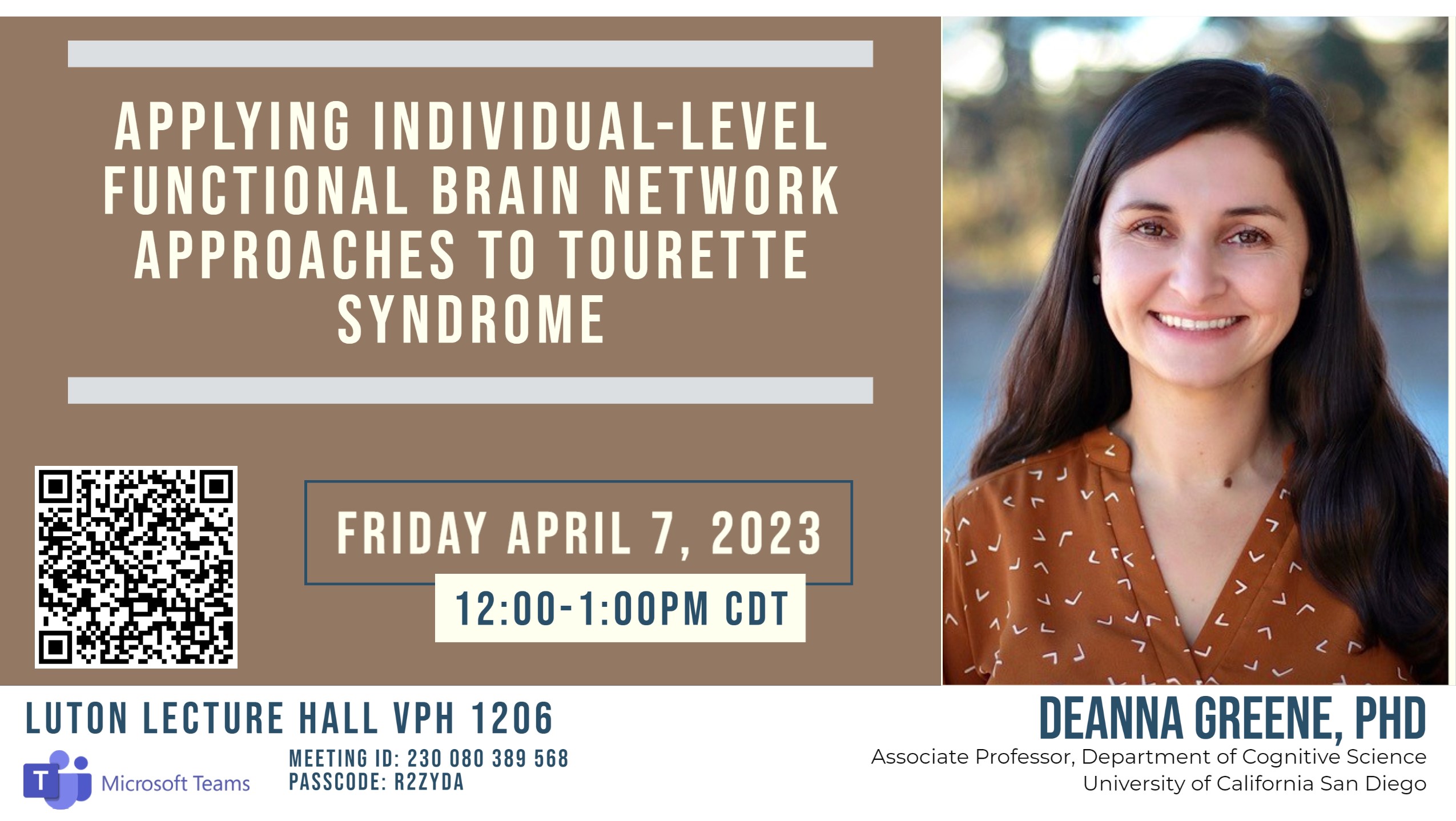"Applying individual-level functional brain network approaches to Tourette syndrome"

Deanna Greene, PhD
Associate Professor, Department of Cognitive Science
University of California San Diego
Deanna Greene is an Associate Professor in Cognitive Science at UCSD. She received a PhD in Psychology from UCLA and postdoctoral training in Psychiatry at Washington University in St. Louis. In 2014, she joined the faculty at Washington University School of Medicine, where she completed an NIMH funded K01 award to study children with recent-onset tics and began an R01 grant to study longitudinal change in cognitive and brain features of children with Tourette syndrome. In 2020, she joined the faculty at UCSD where her lab studies typical and atypical brain and cognitive development using neuroimaging methods.
Objectives
The activity is designed to help the learner
- Explain why it is important to use individual-level neuroimaging approaches to study neuropsychiatric disorders.
- Describe two of these individual-level approaches and how they can be applied to research.

Summary
Individualized brain-based predictions about prognosis and clinical care would benefit many neuropsychiatric disorders, such as Tourette syndrome. I will discuss two approaches using neuroimaging that are moving us toward this goal. Focusing on functional brain networks as measured with functional connectivity MRI, Dr. Greene will discuss work using (1) machine learning classification to make predictions about individuals, and (2) precision functional mapping to reliably characterize functional network organization in individuals, with specific applications to Tourette syndrome.
This talk is sponsored by the Hollender Lecture Fund, Department of Psychiatry and Behavioral Sciences. This educational activity received no commercial support.